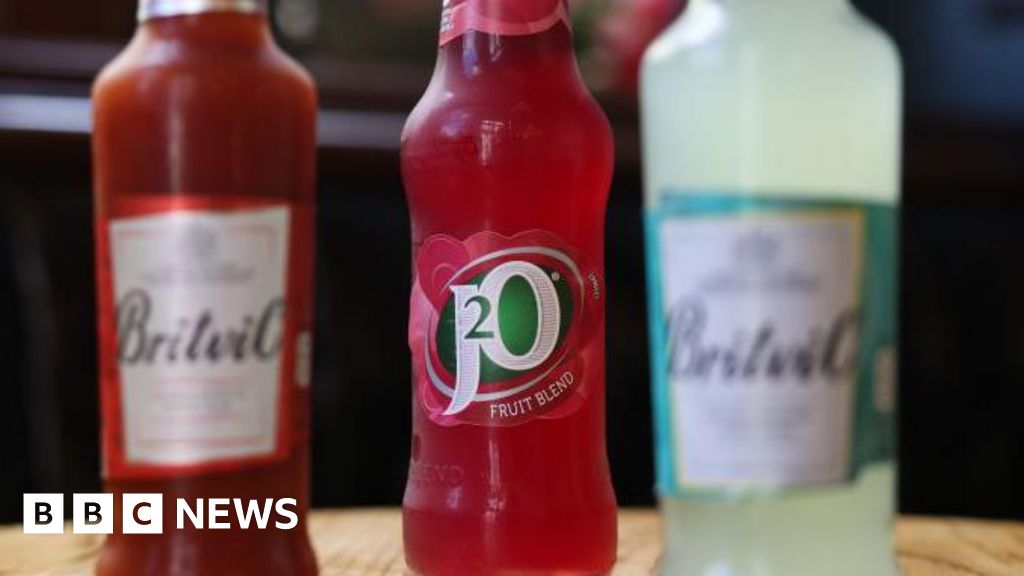ARTICLE AD BOX
Senior ministers will meet Friday afternoon to discuss supply problems at petrol stations across the country.
Cabinet office, transport and environment department heads are all due to take part, the BBC understands.
A small number of petrol stations have been affected, and ministers say drivers should carry on as normal.
Earlier, Transport Secretary Grant Shapps told the BBC nothing was being ruled out to help deliver petrol from refineries to stations.
Some ministers believe a temporary work visa scheme to bring more HGV lorry drivers into the UK from the European Union would help.
But others believe such an approach is not a long-term solution to the driver shortages.
A "handful" of BP stations, and a small number of Esso-owned Tesco Alliance stations, were closed on Thursday because of the lack of delivery drivers.
But Mr Shapps said refineries had "plenty of petrol"and that motorists should "carry on as normal". He told the BBC that the government could bring in the army to drive fuel tankers if it would help.
It is estimated that the UK is short of about 100,000 HGV drivers - with gaps made worse by the pandemic and Brexit.
Reports in several newspapers have suggested that the government is considering getting soldiers to drive fuel tankers under emergency plans.
When questioned about this on BBC Breakfast, Mr Shapps said: "If it can actually help, we will bring them in."
However, he said there would be "technicalities" as to whether military personnel could switch to driving civilian vehicles.
The AA said that most of the UK's forecourts were working as they should.
"There is no shortage of fuel and thousands of forecourts are operating normally with just a few suffering temporary supply chain problems," said AA president Edmund King.
"Fridays and the weekend always tend to be busier on forecourts, as drivers either combine filling up with shopping runs, prepare for weekend trips or refuel for the start of the new working week."
Mr King said drivers should not fill up outside their normal routines, because even if the occasional petrol station was temporarily closed, others just down the road would be open.
"It is now clear that there have been occasional delays over recent weeks that have been managed with hardly anyone noticing. This was a manageable problem."
There are about 8,380 petrol stations in the UK, according to the Petrol Retailers Association. Of these, about 1% are believed to be closed at the moment.
It is understood that about 50 to 100 BP forecourts are affected by shortages, while Esso said "a small number" of its Tesco Alliance retail sites had been hit.
'We are not an attractive industry for the younger generation'
Helena Wright, transport manager for Norfolk-based firm W's Transport, told the BBC her company had sold two lorries after advertising for HGV drivers and not getting a single applicant.
"Normally we would have people on record to call who had left their details," she said. "This is the first time for our firm that that's happened, but it's a problem that has been a long time coming.
"I've got a lot of drivers that are over the age of 50, 55 and looking to retire and we are not attractive as an industry for the younger generation."
She said younger people were not prepared to spend four to five nights a week away from home and were not ready to put up with "inhumane" conditions.
The Road Haulage Association (RHA) has urged the government to relax visa restrictions for foreign workers in the short term to ease the driver shortage.
But Mr Shapps told the BBC he did not want UK lorry drivers to "drop out" because of being "undercut" by cheaper EU labour.
He said there were "systemic problems" in the haulage industry that needed to be resolved, pointing out that the profession was "99% white male" with an average age of 55, facing poor conditions and wages.
Now, he said, pay was rising and there was "a gradual increase" in new drivers.
While the UK does not lack petrol and diesel at refineries, getting it to forecourts has been difficult in some areas.
It is the latest problem caused by driver shortages, which have already led to supply squeezes in other industries, including supermarkets.
image source, Getty Images
RAC fuel spokesman Simon Williams said: "The supply issues affecting a small number of petrol forecourts shouldn't impact the prices drivers pay to fill up.
"But unfortunately the price of oil, which has the biggest influence on what drivers pay at the pumps, is continuing to rise at the moment.
"This may lead to fuel prices going up in the coming days, which would be yet more bad news for drivers, as a litre of unleaded is already over 21p a litre more expensive than a year ago."
Supply chain 'creaking'
The RHA's Rod McKenzie told BBC Breakfast more lorry drivers were leaving the profession each week than joining it.
He said: "It's as simple as this: everything we get in Britain comes on the back of a truck.
"So if there is a shortage of HGV drivers - and there is by 100,000 - then it is inevitable that we are not going to get all the things we want when we want them."
"It is not a case of running out - and people should not panic buy," he added.
He warned there would be glitches "because the supply chain on which we all depend is creaking".
Supermarket Iceland - which is about 100 drivers short - joined Morrisons and Ocado in calling for the government to add HGV drivers to the list of shortage occupations.
That would allow foreign workers to apply for skilled worker visas to fill the current gaps.
"I think the solution - even if it's temporary - is very, very simple," said Iceland managing director Richard Walker. "Let's get HGV drivers on to the skilled worker list."
The RHA's Mr McKenzie said that on top of a historic shortage of drivers, the industry had lost 20,000 European drivers because of Brexit, while the pandemic had forced 40,000 driver training tests to be cancelled.
In a recent RHA survey of 616 hauliers, retiring colleagues and Brexit topped the list of reasons behind the driver shortages.
Respondents also cited tax changes to rules known as IR35, which have made it more expensive for hauliers from elsewhere in Europe to work or be employed in the UK.

 3 years ago
36
3 years ago
36








 English (US) ·
English (US) ·